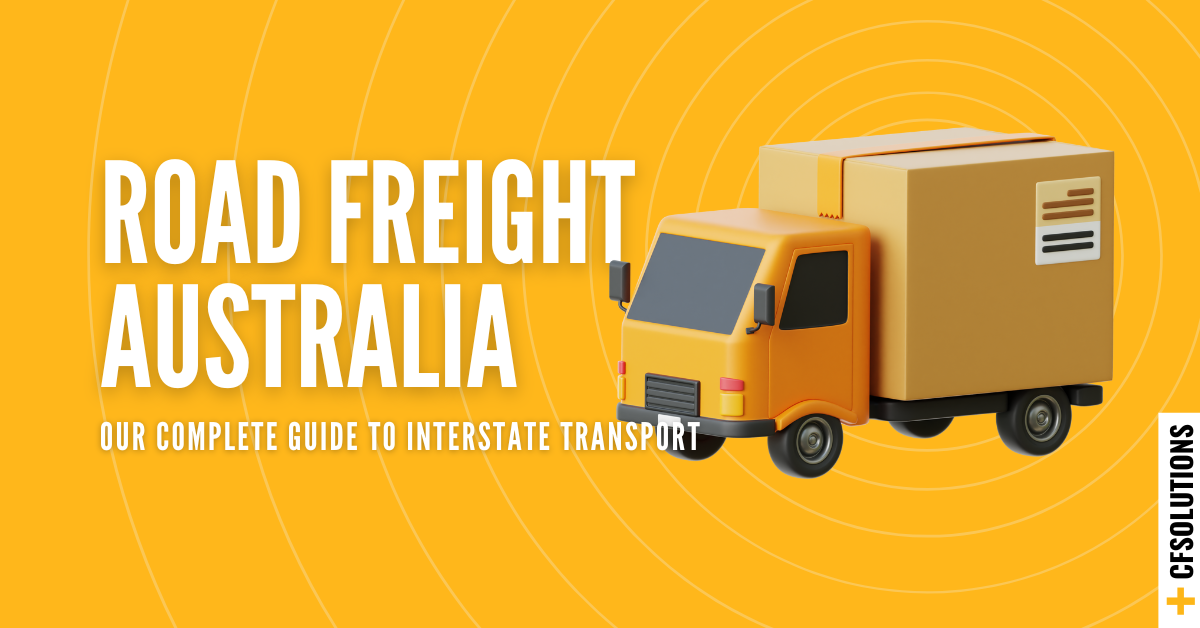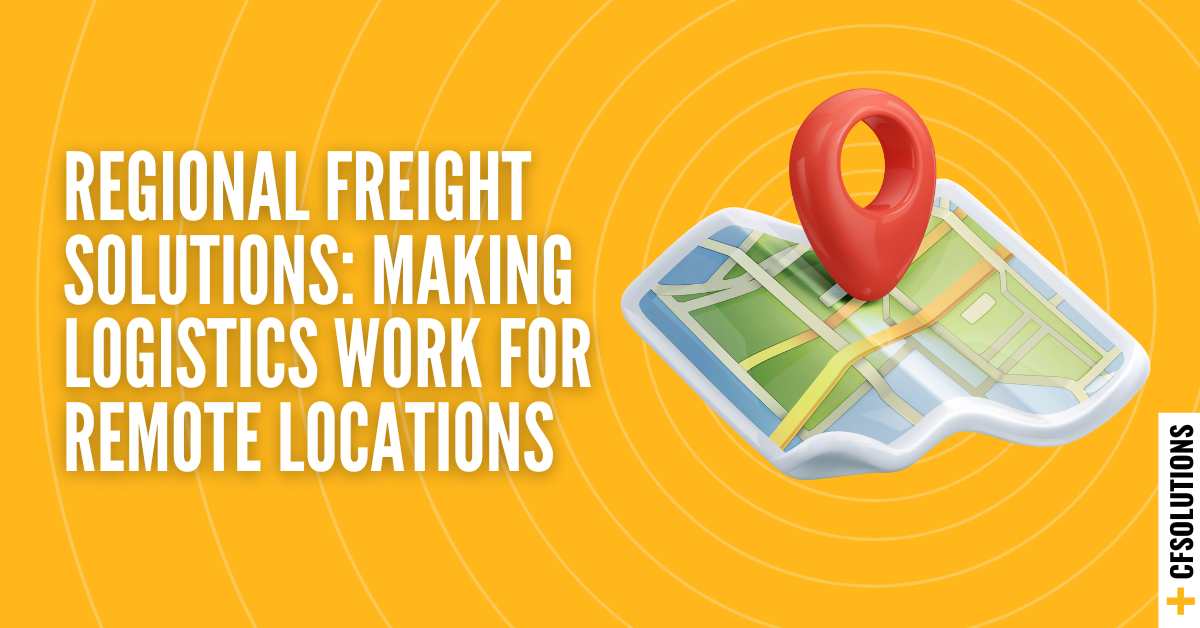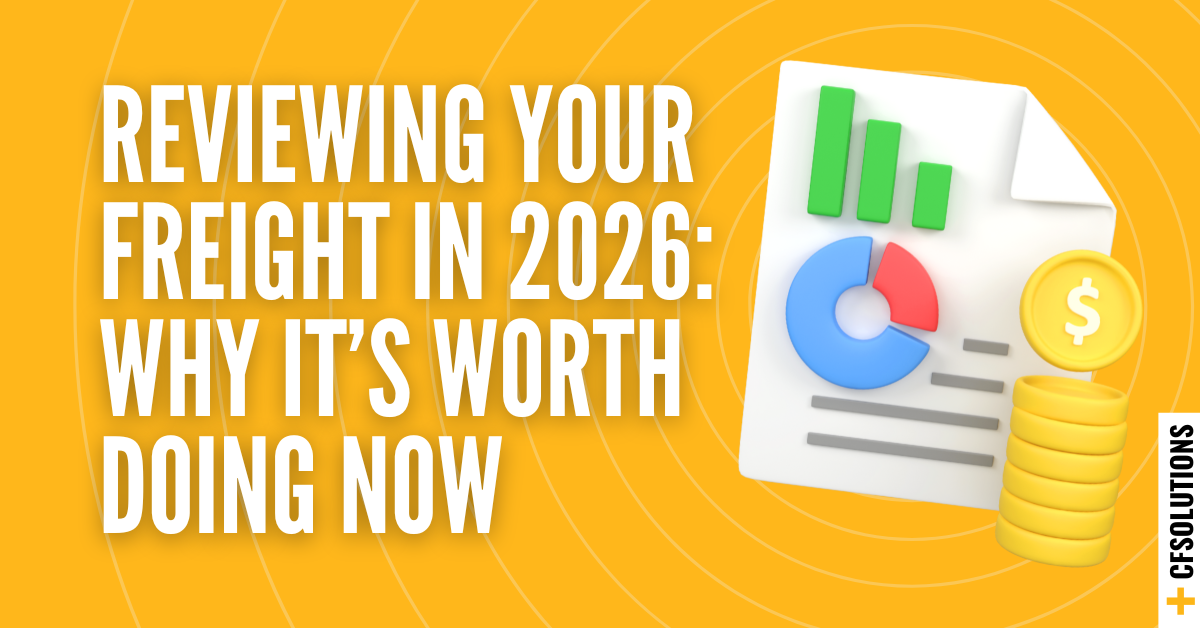
In a country as vast as Australia, road freight plays a pivotal role in keeping businesses connected. Whether you’re shipping pallets, parcels, or oversized freight, road transport is the backbone of interstate commerce. From small businesses needing affordable delivery solutions to large enterprises moving significant volumes, road freight offers versatility and cost-effectiveness for all.
In this guide, we’ll explore everything you need to know about road freight in Australia, from the types of services available to choosing the right carrier for your business needs.
What is Road Freight in Australia?
Road freight is the movement of goods via trucks and vehicles over land, and in Australia, it forms the heart of interstate logistics. With major highways connecting cities and regional hubs, road freight enables the efficient transport of goods across state borders.
For businesses, interstate road freight refers to shipping goods between states, while intrastate freight is limited to transport within a single state. Regardless of the distance, road freight services are essential for delivering goods where other forms of transport, like air or sea, may not be feasible.
Why Choose Road Freight for Interstate Shipping?
For many Australian businesses, road freight is the preferred method for interstate transport due to its flexibility and cost advantages. Here’s why:
- Cost-effective: Road freight offers an excellent balance between being affordable and ensuring timely deliveries. It's an ideal solution for businesses that require both economical pricing and fast transit times, particularly for larger shipments or those that don’t need to be delivered urgently but still require reliable and efficient service.
- Versatility: From small parcels to large, oversized freight, road transport can handle it all, providing flexibility in the types of goods that can be shipped.
- Accessibility: Unlike other forms of transport, road freight can reach even the most remote locations that may not be easily accessible.
Types of Road Freight Services in Australia
Depending on your business needs, there are various types of road freight services available:
- Full Truckload (FTL): Ideal for businesses with large freight volumes that can fill an entire truck. This service is more direct and efficient as the truck carries goods for one customer, reducing stops and potential delays. FTL is often used for high-priority or sensitive freight that requires minimal handling and quicker transit times.
- Less than Truckload (LTL): For smaller loads that don’t require a full truck, multiple customers share the truck space. This option is more cost-effective but may take longer as the truck makes multiple stops. LTL is a popular choice for businesses that need to ship smaller quantities without paying for a full truckload.
- Hub-and-Spoke Network: Many National Carriers use this model where freight is picked up from the sender, transported to a central hub, processed, and then routed to the delivery depot. This system allows freight to be consolidated with other shipments, enabling more efficient transportation and cost savings. The goods are then delivered from the final depot to the customer. This is commonly used for widespread, multi-stop deliveries.
- Express or Time-Critical Services: This service is designed for shipments that need to be delivered within a strict timeframe. While it's more expensive than standard road freight, it guarantees fast transit, often using dedicated vehicles to minimise delays.
- Tailgate and Manual Handling Services: These are add-ons for deliveries where a forklift or loading dock is unavailable. Tailgate trucks are equipped with a hydraulic lift to assist in loading and unloading, particularly for residential or small business deliveries. Manual handling services are also offered when the freight requires more hands-on care during loading or unloading.
- Rail and Road Combination: This option combines road and rail transport for long-haul freight. Goods are shipped by rail for the main leg of the journey and then transferred to trucks for the final mile delivery. This service is often used for transporting goods to remote areas or across large distances within Australia.
- Courier and Parcel Services: This service is designed for smaller, time-sensitive deliveries, typically within the same city or region. These services often include same-day or next-day delivery options, with vehicles ranging from vans to small trucks depending on the size of the delivery.
- Dedicated Truck Service: A service where a truck is assigned exclusively to one customer for a specific shipment. This option is ideal for high-value goods, fragile freight, or shipments requiring a specific route, and it offers maximum control and security over the delivery.
Interstate Road Freight Regulations in Australia
Road freight in Australia is governed by several regulations designed to ensure safety and compliance:
-
Chain of Responsibility (CoR) laws: These laws ensure that everyone in the supply chain, from the driver to the business owner, shares responsibility for safety. Compliance with these laws is critical for businesses using transport and logistics services.
-
Weight and dimension regulations: There are strict rules around the weight and dimensions of trucks on Australian roads. Overloading can lead to fines and delays, so it’s essential to ensure your shipments comply with these limits and are correctly declared.
-
Safety protocols: If you’re transporting dangerous goods, additional safety regulations apply. Special packaging, labelling, and handling protocols must be followed to ensure the safety of drivers and the public.
Road Freight Australia vs. Air Freight Australia
While air freight is faster, road freight has distinct advantages that make it a practical choice for many businesses:
-
Cost: Road freight is generally cheaper than air freight, particularly for large shipments. If your delivery isn’t time-sensitive, road transport offers significant savings whilst achieving timely transit times.
-
Volume capacity: Trucks can carry larger and bulkier items than planes, making road freight ideal for businesses shipping heavy or oversized goods.
- Dangerous Goods Freight: Road freight is often the preferred method for transporting dangerous goods (DG) due to stricter regulations and limitations imposed on air freight. Transporting DG via road allows for better handling and compliance with Australian Dangerous Goods Code (ADG), ensuring that hazardous materials such as chemicals, gases, or flammable items are moved safely with minimal risk. Road freight offers more flexibility for such shipments, as air freight has more prohibitive restrictions on the types and quantities of dangerous goods that can be carried.
How to Reduce Costs for Road Freight Services
Keeping your freight costs down is essential for cost recovery. Here are some tips:
-
Consolidate shipments: Group your smaller shipments into larger loads whenever possible to save on freight costs.
-
Accurate consignment details: Ensure that your shipment’s weight and dimensions are accurate to avoid unexpected surcharges or delays.
-
Multiple carriers: Don’t rely on a single carrier. Compare quotes from different providers to find the best rate and service for your needs.
By working with a freight management service, businesses can streamline the process of comparing rates, managing shipments, and avoiding costly mistakes.
Common Challenges with Road Freight and How to Manage Them
Like any logistics service, road freight has its challenges:
-
Delays: Traffic, roadworks, and accidents can all cause delivery delays. Working with a reliable carrier and having a flexible schedule can help minimise the impact of these delays.
-
Damaged goods: While not a common occurrence, damage to goods can happen during transit, especially if freight isn’t packaged or secured properly. With the constant movement and handling throughout the journey, poorly packed items are more susceptible to damages. Ensuring your freight is well-packaged and securely loaded, and choosing carriers suitable to handling your goods is key.
-
Hidden costs: Some carriers may charge extra fees for services like manual handling or residential delivery. Clarify all costs upfront and use a freight management platform to keep track of charges.
Choosing the Best Road Freight Provider in Australia
Choosing the right road freight provider is essential for ensuring your business runs smoothly. When selecting a provider, consider:
- Cost: Working with a transport provider who can offer you transparent quotes upfront, with clear visibility on any potential surcharges. This helps you manage costs effectively and ensures you're choosing the right solution without surprises later on.
- Reliability: Opt for carriers with a strong track record of reliability, ensuring your goods are delivered on time and with minimal risk and a consistent service level. The flexibility to choose the right carrier for specific needs helps keep your logistics running smoothly.
- Coverage: Ensure your freight provider has the reach to deliver wherever your business requires, from major cities to remote areas. Having access to a wide range of delivery options ensures consistent service across all your locations and optimised lane rates.
- Flexibility: Look for services that can adapt to your changing needs, whether it's handling high volumes during peak times or managing specialised shipments. Having access to a range of service options ensures your business can scale its logistics seamlessly.
- Speed: Depending on the urgency of your delivery, it’s important to have options that cater to both express and standard shipping times. Being able to choose the right transit time for each shipment can help optimise your supply chain efficiency.
- Customisation: Choose a provider that offers tailored solutions for your freight requirements. Customised service, special handling, or unique delivery schedules can give your business the extra support it needs to meet specific operational demands.
- Technology Integration: Ensure that your provider offers modern tracking and management systems that keep you informed about the status of your shipments in real time. A well-integrated system provides transparency and allows for better decision-making along the supply chain.
Working with a freight management service can simplify the process of finding and managing carriers, ensuring your business gets the best value for its road freight needs.
Road freight remains a critical part of Australia’s logistics landscape, providing affordable and reliable transport for businesses of all sizes. Whether you’re shipping across states or managing a nationwide distribution network, choosing the right road freight services is key to keeping your operations running smoothly.
To find out how Customised Freight Solutions can streamline your road freight operations and provide tailored freight management services, get in touch with us today or learn more about managing your freight by reading our Understanding Interstate Transport in Australia: A Comprehensive Guide article.
Subscribe to our Newsletter or Follow Our Socials
- by Customised Freight Solutions
- 0 Comments
Regional Freight Solutions: Making Logistics Work for Remote Locations
Freight logistics in regional and remote Australia comes with unique ...
Read More- by Customised Freight Solutions
- 0 Comments
Reviewing Your Freight in 2026: Why It’s Worth Doing Now
As businesses move into 2026, many freight arrangements are still ...
Read More- by Customised Freight Solutions
- 0 Comments
Freight Performance That Matters: How to Measure Success in 2026
Freight performance plays a critical role in overall business ...
Read More



